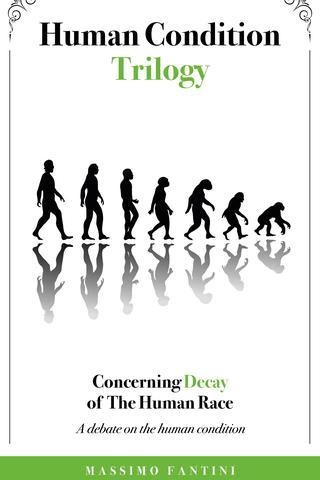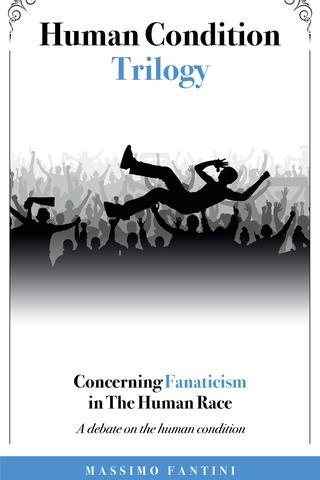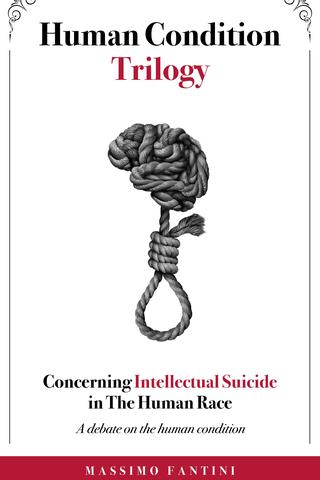 MassimoFantini writer
MassimoFantini writer
Stories

|
Concerning Decay of The Human Race by Massimo Fantini The small village on the Island of Iguanas is home to three self-contained and interconnected stories. The first story tells of a brilliant young Physics graduate named Mattia, who embarks on a sightseeing trip to the island with his family. Right from the start, the family’s relations with the local native population on the island are strained, due to differences in customs and cultures. When the rapid spread of a lethal epidemic brings everyone face-to-face with imminent death; will this be an opportunity to reconsider their values, or just another situation to divide them further? In the second section, the Resettlement Program brings a new group of people to the village – some seventy desperate families willing to leave their motherland and start a new life away from the trappings of progress. Here, the fate of Riccardo – an introverted young man with suicidal thoughts – is intertwined with that of Luca – an exuberant boy who has just started discovering his own feelings and sexual drives. In the background, there are the contrasts between the adults grappling with a chaotic and deregulated community's life, while trying to build a new social fabric. The settlement grows and consolidates its democratic structure. In the third section, the villagers must deal with one last challenge – the eschatological one. Faced with the fear of God’s wrath, of mortal sins, hellfire and eternal damnation, many consciences awaken; bringing out past and present misdeeds. The adults’ lifestyle reveals its very nature: rotten, immoral, inhuman, exemplifying how low the human race has fallen in its process of decay. |

|
Concerning Fanaticism in The Human Race by Massimo Fantini Elijah is a promising young lawyer, in love with his work and confident in the potential of the human race. His law firm’s senior partner gives him his first important assignment. Elijah will have to follow the case of Leonard, an elderly engineer who lives in Montepastore, a small village in Italy’s Bolognese Apennines. Leonard's question concerns the supplementary contribution that engineers enrolled in the professional register are required to pay to Inarcassa, the Engineers’ Pension Fund. At first, the case seems simple. It was the subject of a previous ruling by the Court of Cassation. But Leonard is not satisfied with an institutional response. He wants to know why. He wants to know what hides behind the Supreme Court’s ruling. Through a detailed analysis of the Court of Cassation’s ruling, Elijah and Leonard formulate a hypothesis, according to which the Supreme Court may have been subjected to pressure from advocacy groups aimed at preserving the established order. The Court of Cassation’s ruling, which at first glance seemed like a valid institutional response, ends up bringing out intrinsic contradictions and absurdities which begin to undermine Elijah's trust in Italian institutions. But Elijah can't afford to fail on his first important assignment. He aspires to an accelerated career. He aspires to become the youngest partner in the law firm. Therefore, he is obliged to indulge Leonard's mind-bending lucubrations even when these seem designed to destroy Elijah's trust in justice and jurisprudence. To support his anarchist and non-conformist ideas, the old engineer makes use of examples taken from the real story of his grandfather Alexis, who lived in the second half of the nineteenth century. The concrete evidence brought by Leonard – and Elijah's inability to respond effectively – brings out the prejudices and conditioning to which the young man is a slave. Leonard's demands grow meeting after meeting, and the subject of the dispute widens to include ethical, religious, and historical concerns. Elijah turns to alcohol and becomes stubborn and violent. He insults his friends, abandons his girlfriend, Paola, and moves to Leonard's house with the intention of demolishing his ideas. It's psychological warfare on all fronts. Exhausted and determined to put an end to that agony, Elijah decides to set fire to the old man's house. He gets some cans of petrol, but, at the last minute, changes his mind. Epilogue: A few years later, Elijah finds himself in a notary's office together with the law firm’s senior partner. He has finally achieved his goal: to become the youngest partner in the law firm. |

|
Concerning Intellectual Suicide in The Human Race by Massimo Fantini Tommaso is a despondent engineering student at the local university. He has a life which many people would feel satisfied with: he lives with parents who provide him with all the comforts he could wish for, fellow students and colleagues who are interested in him, and pursuits besides education. However, he feels a nagging sense of emptiness and a disconnection with the outside world. Therefore, he makes an appointment at the Institute, a colorless piece of bureaucracy in his town designed to “help” people like him. Tommaso meets with the functionaries, who ask him the bland, mechanical questions on their forms to evaluate if he is a suitable candidate for their “treatment”: assisted suicide. He increasingly finds himself unable to continue with the process, and comes into contact with Diego, a senior employee at the Institute, whose job is to carry out the treatment. One day, Tommaso goes on a trip with a girl, Francesca, to Mahler’s composition house. Tommaso has a passion for classical music, but his feelings of emptiness overwhelm him. He abandons Francesca and returns home to contemplate his fate. At the same time, Diego takes a special interest in Tommaso’s case. In doing so, Diego begins to realize that Tommaso’s feelings dovetail with his deepening disillusionment with his job. Faced with his inner turmoil concerning the ethics of the job he performs, Diego falls ill. His doctor advises him to visit Father Anselm – an old priest who lives in the mountains – where he spends three days resting and recuperating. During this trip, Diego debates ethics and religion with Father Anselm. The result of these debates leads to Diego deciding to rescind his position as Chief Executioner at the Institute. On returning to the Institute, Diego tries to steer Tommaso back toward hope. Tommaso, however, too absorbed in his own feelings, fails to see the light and returns to his pervasive sense of emptiness and disconnection from the world. |
